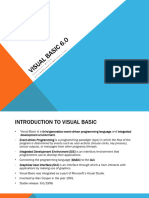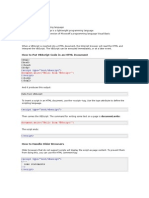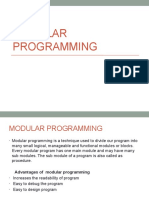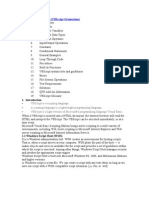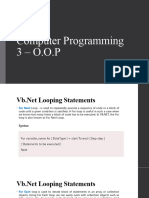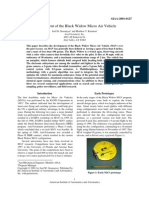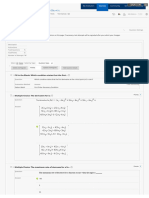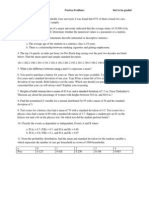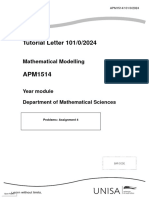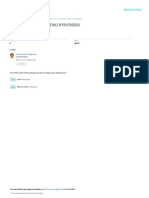VB Script
By: Ali Imran Khan aliimranpk@gmail.com
� VBScript is a scripting language Scripting language is a lightweight programming
language
VBScript is a light version of Microsoft's programming
language Visual Basic
VBScript can be used for both client-side and server-side
programming.
�VBScript Variables
A variable is a "container" for information you want to store.
Naming Rules:
Must begin with an alphabetic character Cannot contain a period Cannot exceed 255 characters Must be unique within its scope
�Lifetime OF Variables
Local Variables:
When you declare a variable within a procedure, the variable can
only be accessed within that procedure. When the procedure exits, the variable is destroyed. You can have local variables with the same name in different procedures, because each is recognized only by the procedure in which it is declared.
Global Variables:
If you declare a variable outside a procedure, all the procedures
on your page can access it. The lifetime of these variables starts when they are declared, and ends when the script is closed.
�Variable (Cont)
Declaration:
Dim Keyword is used to Declare a variable You can Assign a Value to variable directly (without declaring
a variable). But not a good practice. Option Explicit Keyword is used to restrict variables to be declared before their usage.
Example:
Option explicit Dim var_ x var_x=1
�Constants
Const keyword is used to declare constants.
It is necessary to initialize the Constant during its
declaration. You cannot change the value of constants in later script. Syntax: const x=1
�Practical Work !
�Arrays
An array is a set of variables conveniently packages for
easy handling
Sometimes you want to assign more than one value to
a single variable. Then you can create a variable that can contain a series of values. This is called an array variable
�Arrays (cont.)
The declaration of an array variable uses parentheses ( )
following the variable name.
Example:
dim names(2)
names(0)=Ali names(1)=Imran names(2)=Khan"
�Arrays (cont.)
An array can be multi dimensional.
There can be 60 (maximum) dimensions in an array.
Multiple dimensions are declared by separating the
numbers in the parentheses with commas.
�Practical Work !
�Procedures
A Sub procedure: is a series of statements, enclosed by the Sub and End Sub statements can perform actions, but does not return a value can take arguments that are passed to it by a calling procedure without arguments, must include an empty set of parentheses ()
�Procedures (Cont)
Sub Keyword is Used to declare a procedure. End Sub Keyword is Used to defining the ending
boundary of a procedure. Call Keyword is Used in order to invoke a procedure. Syntax: Sub mysub() some statements End Sub Call mysub()
�Procedures (Cont)
Procedure can take arguments that are passed to it by
calling that procedure . Syntax: Sub procedure name(arg1,arg2) some statements End Sub Call mysub(value1,value2)
�Practical Work !
�Functions
A Function procedure: is a series of statements, enclosed by the Function and End Function statements can perform actions and can return a value can take arguments that are passed to it by a calling procedure without arguments, must include an empty set of parentheses () returns a value by assigning a value to its name
�Functions (Cont)
Function Keyword is Used to declare a Function.
End Function Keyword is Used to defining the ending
boundary of a Function. <Function Name> is Used in order to invoke a Function. Syntax: Function myfunc() some statements End Function myfunc
�Practical Work !
�If Condition
If keyword is used for executing a set of code when certain
condition is true. Endif keyword is used to end the if condition code block.
Syntax:
If <condition> then Some statements End if
�If-Else Condition
if...then...else - use this keyword if you want to select
one of two sets of lines to execute
if...then...elseif - use this keyword if you want to
select one of many sets of lines to execute
�If-Else Condition (cont.)
Syntax :
if <condition> then Some statements Else Some statements end If
�If-Elseif Condition (cont.)
Syntax :
if <condition> then Some statements Elseif <condition> then Some statements Else Some statements end If
�Practical Work !
�Select Case Condition
Select case keyword is used to execute one of many blocks of code.
Syntax
select case <variable> case <first expected value>
Some statements
case <second expected value>
Some statements case Else Some Statements end select
�Practical Work !
�For Loop
For loop is used to execute set of statements , pre
defined number of iterations. For Next keywords are used to implement the For Loop.
Syntax:
For <Loop initialization state> to <ending condition>
Some Statements
Next
�For Loop (cont.)
Step keyword is used to increase or decrease the
counter variable by the specified value.
Syntax
For <Loop initialization state> To <ending condition> Step <Increment/Decrement value> some statements Next
�For Loop (cont.)
You can use for loop in order to repeat a block of code for
each item in a collection, or for each element of an array.
Syntax: For Each <variable name > in <array Variable Name>
<Some Statements>
Next
�Practical Work !
�Do-while loop
Do-while keywords are used to execute specified code
for a set of times (until a condition remains true or a condition becomes false).
Syntax
Do While <Condition for loop>
Some Statements
Loop
�Do-while loop (cont.)
Do-While can also used in following syntax:
Do some Statements Loop While i>10
�Do-Until Loop
Do Until keyword is used for repeating some set of
statements until a certain condition is true.
Syntax:
Do Until <Condition>
some statmemts
Loop
�Do-Until Loop (cont.)
Do-Until can also used in following syntax:
Do some statements Loop Until <Condition>
�Practical Work !
�Built in Functions
VB Script provides several built in functions that can
be used just by calling them.
Few Examples: Date Time Int
�Practical Work !
�Thank You !




